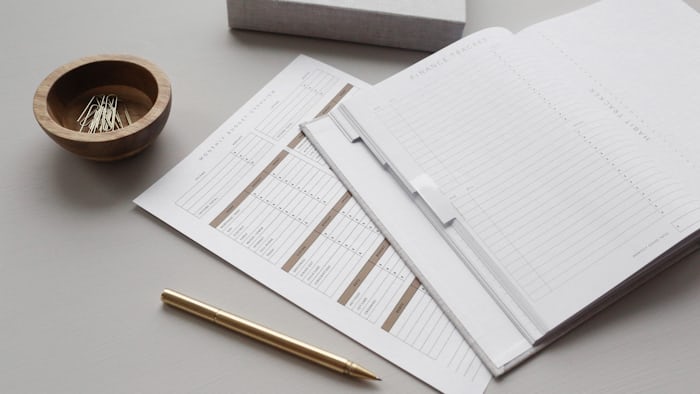Last updated Jul. 23, 2024 by Okechukwu Nkemdirim
Why Keep Rental Property If I Canʼt Deduct Losses?
Introduction
Owning rental property comes with many responsibilities and financial implications. Among those financial concerns is the ability to deduct losses on tax returns. Tax considerations often play a significant role in the decision of whether or not to continue holding rental property. This article delves into the reasons why keeping rental property might still be a prudent decision, even if you can’t deduct losses.
Understanding Rental Property Losses
Owning rental property can lead to financial gains through both rental income and property appreciation over time. However, it’s also possible to incur losses. These losses can come from various sources, such as maintenance costs, property management fees, repairs, and mortgage interest.
In the past, favorable tax treatments often allowed property owners to deduct losses from their taxable income, thereby providing significant tax relief and making rental investments more attractive. However, due to recent changes in tax laws, the ability to deduct these losses has become more limited in some cases.
Benefits of Holding Rental Property Despite Non-Deductible Losses
-
Appreciation
One of the primary reasons to hold onto rental property is potential appreciation. Real estate values historically rise over time, resulting in significant capital gains. Although you cannot deduct losses, the increase in property value may eventually offset those losses, leading to overall profitability.
-
Rental Income
Even if you can’t deduct your losses, you can still earn rental income. Steady rental income can provide financial stability and supplement other income streams. Over time, rental rates often increase, potentially yielding higher returns.
-
Equity Buildup
Equity buildup is another compelling reason to retain your rental property. As you pay down your mortgage, your equity in the property increases. This financial leverage allows you to build wealth over time and enhances your net worth.
-
Leverage
Retaining a rental property provides leverage that can be beneficial for future investments. The increased equity can be accessed through refinancing or taking a loan against the property, which can be reinvested into other prospects.
-
Diversification
Real estate investment diversifies your portfolio. Holding different types of assets spreads risk and increases the potential for higher overall returns. Diversification is a robust strategy for long-term financial security.
-
Tax Benefits
While deducting losses may be restricted, you can still benefit from other tax incentives, such as depreciation deductibles and mortgage interest deductions. These savings can help offset some of the costs associated with holding rental property.
-
Inflation Hedge
Real estate often acts as an inflation hedge. As inflation rises, so do property values and rental rates. This attribute ensures that your investment remains robust against the eroding effects of inflation.
-
Retirement Plan
Perhaps, your rental property is part of a long-term retirement plan. Holding onto the property can provide a substantial nest egg for your retirement years, either through selling the appreciated property or by continued cash flow from rental income.
Considerations Before Deciding To Hold the Property
-
Cash Flow Analysis
Conduct a thorough cash flow analysis. Assess all expenses against rental income to establish whether the property generates positive cash flow, thereby justifying the decision to hold it.
-
Market Trends
Stay updated on real estate market trends. Market data can guide you in making informed decisions about holding or selling the property.
-
Long-Term Goals
Align your decision with your long-term financial goals. Consider how rental property fits into your overall financial strategy and aspirations.
-
Management Issues
Evaluate if you’re capable of managing the property, either personally or through a property management service. Management issues can influence whether you keep the property.
Conclusion
Keeping a rental property, even if you can’t deduct losses, can be advantageous. Appreciation, rental income, equity buildup, diversification, and other benefits can outweigh the drawbacks. By evaluating cash flow, market trends, and aligning property ownership with long-term goals, you can make an informed and strategic decision.
FAQs
Q1: What is the primary reason to keep rental property if I can’t deduct losses?
A1: The primary reason is potential appreciation. Over time, real estate values tend to rise, providing significant capital gains that can offset losses.
Q2: Are there other tax benefits besides loss deductions?
A2: Yes, there are other tax benefits, such as depreciation deductibles and mortgage interest deductions, which can help lower your overall tax liability.
Q3: How can rental property help with my retirement plan?
A3: Rental property can be a valuable asset in your retirement plan by providing a steady income stream or through substantial equity that can be realized upon selling the property.
Q4: What factors should I consider before deciding whether to keep my rental property?
A4: Consider factors like cash flow analysis, real estate market trends, management capacity, and alignment with your long-term financial goals.
Q5: How does rental property act as an inflation hedge?
A5: Rental property acts as an inflation hedge because both property values and rental rates typically rise with inflation, protecting your investment’s value.
<div class="short-answer">
<style>
.short-answer {
position: relative;
padding: 20px;
padding-top: 30px;
background: #DFF9ED ! important;
border-color: #b0edd2 ! important;
border: 2px solid ! important;
border-radius: 6px ! important;
margin: 22px -3px 23px 0px ! important;
}
.short-answer h3 {
margin-top: 0 ! important;
}
</style>
<h3> ✓ Short Answer</h3>
<p>Even if you can’t deduct losses on rental property, keeping it can still be beneficial. Potential advantages include property appreciation, rental income, equity buildup, inflation hedging, and portfolio diversification. It's crucial to evaluate your cash flow, market trends, and long-term financial goals before making a decision.</p>
</div>






